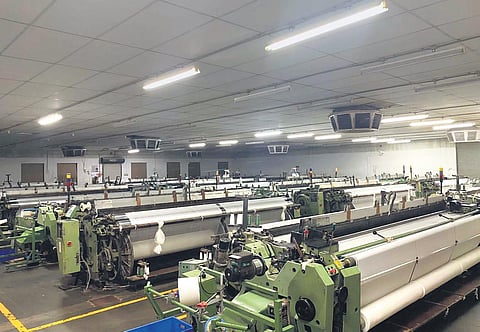

TIRUPPUR: Garment exporters here staged a two-day protest condemning the increase in yarn prices and urged mills to reduce prices by Rs 40 a kilogram. But mills cite several reasons for the increasing prices, including rising cotton prices, and the unavailability of containers for imports.
M Jayapal, president of the Open-Ended Spinning Mills Association, said, “We used to buy cotton from other states. But cotton candy rates began to rise sharply. Two years ago, candy price was Rs 38,000-Rs 42,000. Small, medium and large mills would buy cotton six months in advance based on their financial condition. But, at the beginning of the cotton season (Nov-Dec), candy rates hit Rs 65,000, an all-time high. Experts attributed the price hike to large-scale hoarding by commodity exchanges such as MCX, etc. Meanwhile, the Centre, to support garment exporters, issued orders to relax import duty on cotton.
But it was too late. There was a scarcity of containers in international market. Some mills approached logistic companies, which increased the rent of containers here. As mills were planning to use Chennai and Thoothukudi ports, transportation costs added to the burden. So Centre’s decision to reduce import duty on cotton didn’t have any positive effect.”
South India Spinners Association (SISPA) Honorary Secretary and Hi-tech spinning mills Managing Director S Jagadeesan said, “The garment industry is labour intensive, whereas mills are capital intensive. Garment units can outsource their process, but we cannot. Most machineries are imported. One auto cone costs `20 crore. We need at least 7-8 auto cones for a mill with 25,000 spindles. Exporters must realise cotton prices have increased by 40% in six months.”
Some mills claimed that the cotton market is controlled by multinational cotton players. Sri Pushpaveshwara Enterprises Partner P Sakthivel said, “We are in no way the cause for the hike in yarn prices. Cotton, the raw material, accounts for 50% of the cost while power supply and labour consume 30%. So all small-and-medium-sized cotton mills run on thin profit. International players involved in the cotton trading, who stock massive quantities of cotton, are creating demand which is jacking up prices. Requesting cotton mills to reduce cotton yarn rates isn’t fair.”